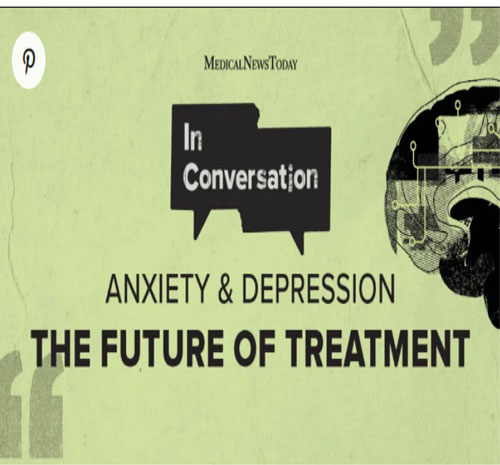Growing research into hallucinogenic drugs is demonstrating that—contrary to what was previously believed—depression and anxiety cannot be reduced to a simple equation of chemicals in the brain. So, will psychedelics be able to bring a decisive paradigm shift to how we view and treat these mental health conditions?
Design by Bailey Mariner
According to the World Health Organization (WHO), more than 300 million people worldwide are estimated to experience depression and a similar number of people are thought to live with anxiety. As people often experience such mental health conditions simultaneously, which is referred to as comorbidity, and many do not seek treatment, the real number likely is a lot higher.
Until now, researchers’ approach to treating anxiety and depression has largely focused on striking a delicate balance between chemical messengers in the brain.
The plethora of medications prescribed, such as SSRIs (selective serotonin reuptake inhibitors)Trusted Source all work around that principle.Studies on hallucinogenic compounds, however, have shown that such drugs can help the neurons in the brain “talk with each other” via neurotransmitters, or chemical messengers. This has led to the emergence of the “network theory.”
“There really has been almost like a paradigm shift in the way that we looked at the pathophysiology of depression; it used to focus on chemical imbalance.
Now, it has shifted to look at it a little bit more as a disorder of synaptic plasticity, as well as neural interconnectivity.” — Dr. Adrian Jacques Ambrose, adult, child/adolescent psychiatrist In the latest episode of our In Conversation podcast, we discuss the newest research into the neuroscience of anxiety and depression and how this may change the future of treatment with Dr. Adrian Jacques Ambrose, medical director of the Columbia Psychiatry Practice Office. Dr. Ambrose also specializes in interventional neurotherapeutic psychiatry, working with ketamine, electroconvulsive therapy (ECT), and transcranial magnetic stimulation (TMS) in the treatment of resistant mood disorders.
Our other interviewee is Olivia, who has been living with anxiety and depression for a number of years, and she shares her experience.
You can listen to our podcast in full below, or on your preferred streaming platform.









